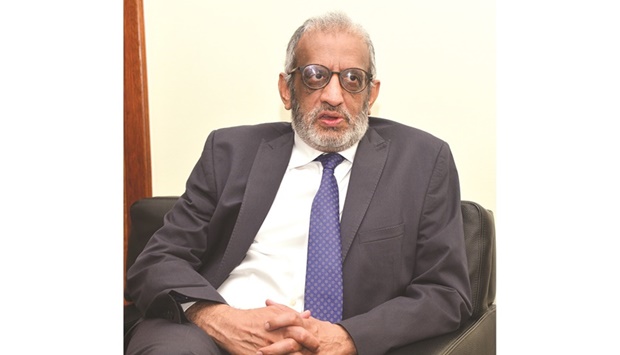The African Continental Free Trade Agreement (AfCFTA) would further boost economic and trade relations between Qatar and South Africa, as well as other countries in Africa, South African ambassador Ghulam Hoosein Asmal has said.
According to Asmal, the AfCFTA is the “second largest free trade agreement in the world” and provides investors access to global markets. He said South Africa has concluded several trade agreements that support export market growth prospects.
“The best example is the African Continental Free Trade Agreement, which was founded in 2018 with trade commencing in 2021. It creates a single market for goods and services to deepen economic integration in Africa.
“Fifty-four of the 55 African countries have signed the AfCFTA and the combined GDP of its members is approximately $3tn to $4tn, and a population of about 1.5bn people,” Asmal explained.
The ambassador pointed out that Qatari investors looking to pour investments in South Africa’s manufacturing sector, for example, “would have access to the whole African continent.”
“More importantly, I believe that Qatar and South Africa, as well as the rest of Africa, can have trilateral co-operation in terms of investments and to maximise the mining sector, among other industries. The capital may come from Qatar and the resources from South Africa, and I think that is a ‘win-win’ solution.
“We need to take advantage of new areas of communication and co-operation so that we could develop our economies and bring development to the ordinary people of the world,” Asmal pointed out.
According to data from the Industrial Development Corporation of South Africa (IDC) and InvestSA, foreign investors seeking access to the rest of the African continent can leverage South Africa’s well-developed industrial ecosystem and diversified economy, particularly its established manufacturing sector and value chains, among other benefits.
IDC and InvestSA data also noted that numerous regional investment opportunities are available in the climate-smart agriculture and agro-processing sectors. Around 60% of Africa’s arable lands is uncultivated and the continent has abundant water resources for agriculture development.
In mining and minerals processing/beneficiation, investors should target key mining sectors for globally-competitive downstream manufacturing metals industries, and minerals exports, as well as to promote energy security and support climate change mitigation efforts.
Other sectors for regional investment opportunities include hydrocarbons, particularly natural gas; manufacturing, digital technologies, including Information and Communications Technology (ICT); infrastructure, logistics, and energy development; and other consumer goods and services.
According to Asmal, the AfCFTA is the “second largest free trade agreement in the world” and provides investors access to global markets. He said South Africa has concluded several trade agreements that support export market growth prospects.
“The best example is the African Continental Free Trade Agreement, which was founded in 2018 with trade commencing in 2021. It creates a single market for goods and services to deepen economic integration in Africa.
“Fifty-four of the 55 African countries have signed the AfCFTA and the combined GDP of its members is approximately $3tn to $4tn, and a population of about 1.5bn people,” Asmal explained.
The ambassador pointed out that Qatari investors looking to pour investments in South Africa’s manufacturing sector, for example, “would have access to the whole African continent.”
“More importantly, I believe that Qatar and South Africa, as well as the rest of Africa, can have trilateral co-operation in terms of investments and to maximise the mining sector, among other industries. The capital may come from Qatar and the resources from South Africa, and I think that is a ‘win-win’ solution.
“We need to take advantage of new areas of communication and co-operation so that we could develop our economies and bring development to the ordinary people of the world,” Asmal pointed out.
According to data from the Industrial Development Corporation of South Africa (IDC) and InvestSA, foreign investors seeking access to the rest of the African continent can leverage South Africa’s well-developed industrial ecosystem and diversified economy, particularly its established manufacturing sector and value chains, among other benefits.
IDC and InvestSA data also noted that numerous regional investment opportunities are available in the climate-smart agriculture and agro-processing sectors. Around 60% of Africa’s arable lands is uncultivated and the continent has abundant water resources for agriculture development.
In mining and minerals processing/beneficiation, investors should target key mining sectors for globally-competitive downstream manufacturing metals industries, and minerals exports, as well as to promote energy security and support climate change mitigation efforts.
Other sectors for regional investment opportunities include hydrocarbons, particularly natural gas; manufacturing, digital technologies, including Information and Communications Technology (ICT); infrastructure, logistics, and energy development; and other consumer goods and services.


